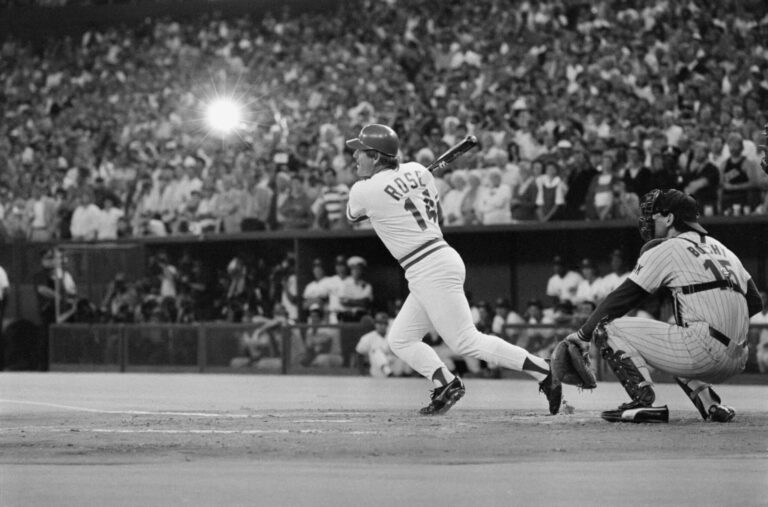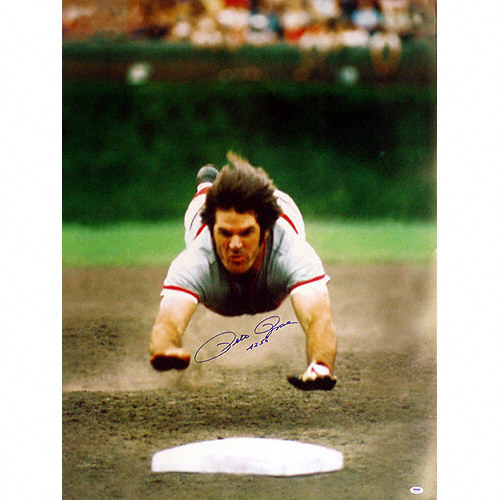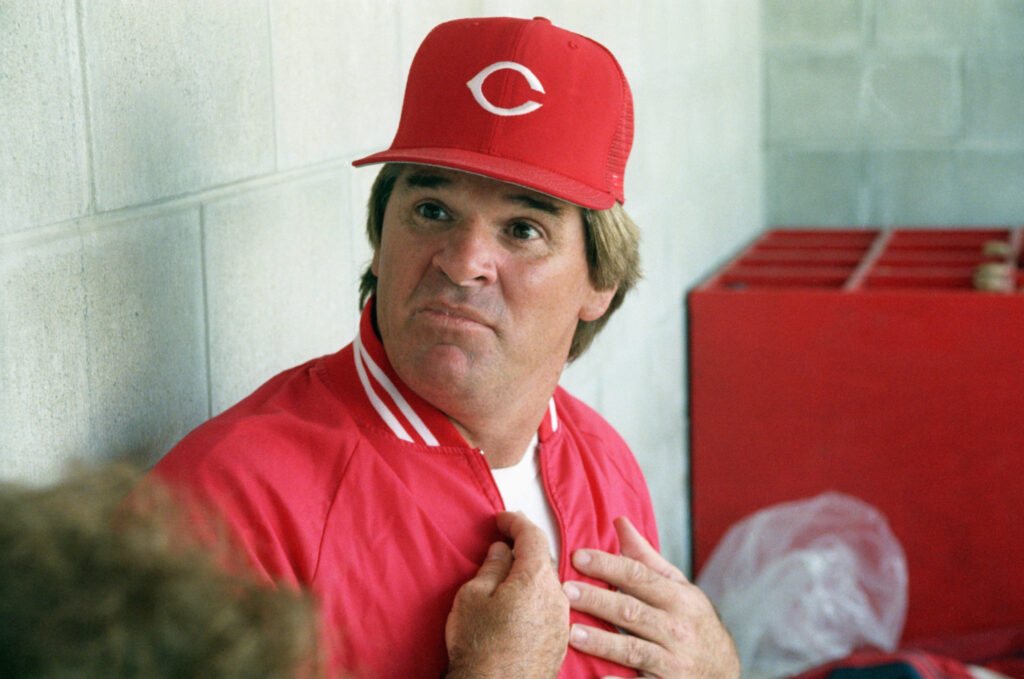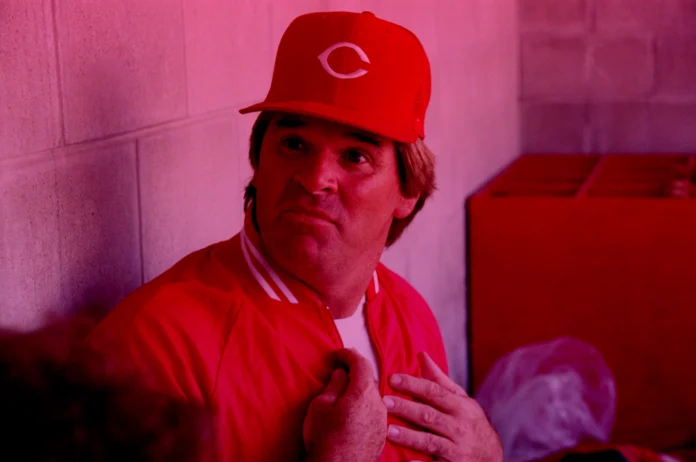
Reflections on Pete Rose, the Hall of Fame and the spot where his plaque will never hang
At this time, I’m nearly sure that I have known for over thirty years that the plaque for Pete Rose should have been Erghel in a Hall of Fame.
It should have been situated at the centre stage of that baseball culture, coving with her mad posing beside hot minds like Tom Seaver, Reggie Jackson, and so on. There would be thousands of fans in a deep stupor over his exhibited plaque, trying to comprehend that out of almost 23,000 names associated with professional baseball, Pete Rose scored more hits than any other human being.
What is ironic about all those possibilities is that, and what is most frustrating, is that in the universe, that should have been acknowledged today and how it is communicated in the various chronicles surrounding and significantly the four thousand two hundred and fifty-six hits that Pete Rose accumulated.
For thirty years, I’ve imagined that I stood before the glass case housing the Show of Roses nameplate at Cooperstown, New York, only to feel curse, extreme agony and mourning. Then, on Monday, the curse became thicker following the announcement that Pete Rose was no longer alive and died at 83.
For this reason, I’ve repeatedly spoken and written about how the very material that Bunin brought in is the most depressing baseball story ever covered in all the years of the sport. Let me explain why. Why is this sad for those who knew him? They know that the end of this tale shouldn’t have come like this.
Baseball was the game for Pete Rose – he was an absolute sensation, leaving aside his skill. He elevated the on-field excitement. Dust and dirt flew, line drives connected, and headfirst slides were the order of the day, and some energy and humour were enough to make you laugh also.
At 22, he was a Rookie of the Year, At 32 he collected the MVP award, and at 40 he was still the league leader in hits. The Pete Rose Show was a cannot-miss performance.
He was winding up the hitting streak at 44 games and moved ahead of Stan Musial for the most significant number of hits in The National League and, in addition, surpassed Ty Cobb in the number of hits altogether. He was baseball – he lived and moved in baseball, and that’s what you call a sports freak. He probably knew more about the history of baseball than what was packed in that area.
In my lifetime, he is and shall remain, the most charismatic personality in baseball, and I do not regret saying that. I have come to this conclusion every time I have mulled over it. No matter what, as soon as Pete Rose was on the field, there was nothing else we could see. Even in his absence on the field, he was still the main topic of the conversation.
Rose attracted the attention of many with his charming countenance, his penchant for racing to first base following each of his 1566 passes for balls, and his skill to flash a pretty face at any necessary moment. He made himself the focal point in the baseball galaxy. The moment he entered a room, it did not take long before he was the most assertive occupant of that space.

If only we had spent the last few decades discussing the baseball miracle that was Pete Rose. Why only did we get the Hit King over the years instead of all of it?
But all that changed once the truth about the other side of Rose began to come out. If only there hadn’t been so many scripts about gambling around. If only the Hit King hadn’t been √óhovered by so many unsavory characters, risk in that other world. If only he hadn’t dragged behind so many disturbing accusations, including how he treats women. If only…
If only Pete Rose understood he was not invulnerable. Yes. Instead of recalling what he knew and hoping it would go away, he should wish it never happened in the first place, basta. That moment could have been a wake-up call to Rose – instead, it set the foundation for the suspension that would never allow him to change history.
It has been thirty-five years since I last found myself in New York’s grand ballroom, where Giammati declared the ban on Pete Rose. On that fateful day, the 24th of August in 1989, none in the room will fail to remember how the shock wave lifted everyone when the commissioner spoke the words no one had wished to hear. How was it that Pete Rose’s career was not coming to a close on the baseball field but in a ballroom?
Something was very, very peculiar. Not that Giamatti’s ruling was in any way wrong; instead, Rose’s, quite understandably, own undoing brought him to such an unfortunate ending point. So many bad decisions and paths were made, leading to this point.
Only this was not the end of defeat after defeat. Rose was able to get away from the sport of baseball, not in any given sense, but instead in the hopes of getting an inscription about himself. However, that is what he knew, not so unrolled.
He had so many chances to make things right. Still, he knew how to twist the situation to benefit himself. He had an energetic,c gung-ho style, but there was always one constant pattern — every time there was a productive change, it was counterefforted. Every time one would think,k This think last pound,r,’ there was always another hammer going down.

In 2002, Pete Rose’s associates Mike Schmidt and Joe Morgan organized the hidden rendezvous between him and Bud Selig, a Major League Baseball commissioner. It was an excellent opportunity to use, perhaps the greatest one he’s ever going to have if he wanted to shift his destiny. He must have been aware that this was his chance for atonement.
Selig spelled out the hurdles to be cleared for the baseball authorities even to consider abandoning Rose’s lifetime ban. Rose had to stop his gambling – all kinds of it. And he had to stop going to betting establishments and race courses. But there was one last condition: Rose had to have a press conference. He would have to stand up and say that he has made a mistake, that he has bet on baseball, and that he apologizes to all of them whom he has let down. He was required to ensure that he would never do it again. They clasped hands on the agreement that could have been the beginning of his rehabilitation.
And then… Rose stormed out of that boardroom and proceeded directly to a Las Vegas sportsbook for an engagement. Selig and his people were furious. At that moment, deserving of the punishment, Rose knew, was her fate. It was evident from the start that there would be no forgiveness, no coming out of that one — and it is pretty challenging to defend any individual except Pete Rose with that loss.
I have been in that situation since that day, and precisely at what point that particular saga would end. This is a case of such knowledge: Never will the day come when, on the hallowed grounds of Cooperstown, Rose squeals and presents himself as one of the new inductees of the Hall of Fame ‘club.’ Such a seat would be empty as that particular plaque in the gallery of plaques does not bear Pete Rose’s name or picture. I knew the day he would inevitably die, on the day I would be writing this column.
But knowing it doesn’t make it any less heartbreaking.
Do you understand that sadness, and at the same time, know why Pete Rose himself is, in a big way, responsible for the ending of this story? I want to believe you do. Both things can be true. With the rules concerning the paper’s content, I would venture into the idea that recalling two of Rose Pete’s memories is rational.
The thrill of standing ovations, the endless pursuit of perfection, the bucket list events, and what was most fun for me – watching him – I’m not letting go of any of these, and I will remember those for the rest of my days.
However, as I said earlier, some injuries remain; how could one not feel sadness when recalling the chronology and development of the rest of his life? I daydream about what was on the cards and how life would have been had he chosen this and that.
However, it took a lifetime for Giamatti to say later Rose would be banned “forever.” Now that Rose’s life has ended, is this how far the belief will go that there could one day be a chance for him to play inside the walls of the Hall of Fame ever again?
Of course, why would they lay wait so long? It has always appeared in my adoption that the Hall of Fame could have had. Was he not going to be honored in some fashion who has more hits than anyone whom the author has met?

Why can we not embrace all the Pete Rose achievements even as we tell the whole truth? Why not give a double-faced wisdom of the Bosom of hitters and the wise House of Controversies in the Hall of Fame? If I were to be the one crafting the plaque delineating the details of the character, that is what I would do. An acceptable tribute, alas, one that pays respect and reveres his great exploits but also understands the blunders that hinder his glory as a person.
But we both know that’s not what will happen. Several sportswriters whom I have spoken to believe that Rose has paid the debt to society for the offense in his past life, and in case of situation of being included on the Fame ballot, Pete Rose, The Hit King, is who they will be voting for, although they have soar reservations towards Pete Rose, The Bet King. And yet, it is nearly pointless to dwell on such a possibility. It is more likely that Taylor Swift will be nominated for the Ballot of Fame than Pete Rose.
Even if Rob Manfred or any future commissioners have a change of heart regarding Rose’s ban, which version of the veteran’s committee would consider him? Just look at what transpired with Barry Bonds and Roger Clemens two years back. Their door is still as locked as ever. Why would we assume that those sentiments would be extended to Pete Rose? The short answer would be that they should not have hopes about it.
However, the reason for Rose’s lifetime ban is not only related to what the man did inside the lines. He argues that his off-the-field actions now shackle his legacy, and the Hall seems committed to making that part of the narrative visible to all. For now, it would not be a piece one can get over with one’s head and lips, which can be pronounced over forever. Because of how much some of us would like to put his exceptional performance in the limelight as much as possible, he suffers that honor from others.
And now that he is no more, any induction would be a mockery, one with no substance as it would have many years ago. How infrequently have I thought about what the Impeccable Character Piazzo Day could be like? Do you have not at all? How many of these live in the Cooperstown region would have such swelling crowds only to hear him speak?
What would he have spoken that day? What tales would he have brought? And what would be the opinion of the rest of the Hall of Fame members as to him? How many would have preferred to take a more eye-catching step and simply not make it to that particular weekend? This induction day would have been like all others, and we would have been replaying until my grandchildren had kids.
That’s how the story goes about Pete Rose himself.
Time, however, makes you painfully understand that he has left this world and will not return. As long as I have been in baseball, Pete Rose has always been a focal point in making things more dramatic. He was never too far away from newspaper offices in Psyche when the reports in ordinary days were blazing. And as long as you had met him, you had something to write about.
However, at present, as I go back to the moments of his life, one thing is clear: I will never forget Pete Rose. Particularly when I am walking in Cooperstown, the place of baseball Hall of Fame, I look over that blank place where his plaque was supposed to be.

